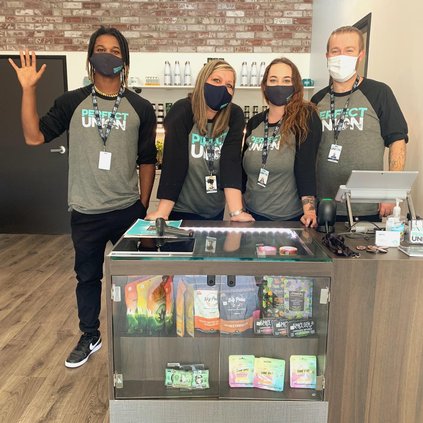Turlock residents won’t be voting on a cannabis tax this November after the city council voted 3-2 on Tuesday against putting it on the ballot.
Mayor Amy Bublak, always a “no” vote on cannabis-related issues, along with vice mayor Pam Franco and councilmember Rebecka Monez, voted against the tax measure, while councilmembers Cassandra Abram and Kevin Bixel — both of whom served on the council’s ad-hoc cannabis committee — voted in favor.
Franco, who attended the meeting via teleconference, was concerned that Firehouse Cannabis Dispensary, the city’s largest retail dispensary, wasn’t made aware of the potential tax proposal.
“I have spoken to Firehouse and they question why nobody bothered to sit down with them and go over this with them,” said Franco. “I don’t understand why someone didn’t go over with the largest dispensary in Turlock the fact that they could possibly be subject to a doubling of their taxes.”
Abram, sitting next to the mayor, could be seen mouthing the words, “That’s not true.”
City finance director Isaac Moreno backed up Abram.
“When we started talking to the ad hoc committee … we did send out notification to all interested parties,” Moreno said. “And if council adopts the 10 percent, then (doubling the tax) would be a valid statement.”
Moreno and Mark Lovelace, a senior policy advisor for cannabis consultant HdL Companies, explained in their June 11 presentation to the council that the 10 percent tax was merely a proposed ceiling to give the council — and future councils — the ability to increase the tax if desired. The sweet spot for a tax seemed to be between 4 and 6 percent, something retailers Perfect Union and Natural Healing Centers supported, according to their spokespersons. The yet-to-open Evergreen Market, which secured Turlock’s fourth and final retail license, did not have a representative speak at the meeting.
Mike Warda, legal counsel for Firehouse, said his client opposes the tax and wants to continue working under the development agreement, which was adopted with the pilot program that initially allowed for the regulation of cannabis businesses.
“We’ve been paying far more than the minimum the entire time that we’ve been here,” said Warda. “And we’ve done it based on the DA agreement that we’ve entered into. Frankly, we just don’t trust that if some huge range is provided, in terms of taxes, that taxes aren’t just going to be increased.”
The city’s cannabis program, established in 2019 as a rolling five-year pilot program, required retailers to enter into development agreements with the city. Under the DAs, retail stores were required to pay a benefit fee of 5.25 percent of gross receipts or $45,000, whichever was greater.
To date, cannabis sales have generated nearly $5 million in revenue for the city.
The council voted in May to accept the recommendations of the ad hoc committee to end the pilot-program status and put a proposed tax on the ballot. Then, on June 11, the council heard the presentation from Moreno and Lovelace.
Abram, the chair of the ad-hoc committee, was visibly upset following the 3-2 vote.
“It’s really frustrating when bad policy is made on bad reasoning,” said Abram after the meeting adjourned. “This is nothing radical. It’s very vanilla and it’s what HdL has offered up in any other jurisdiction. So, we may be stuck in this administrative nightmare with development agreements.”






